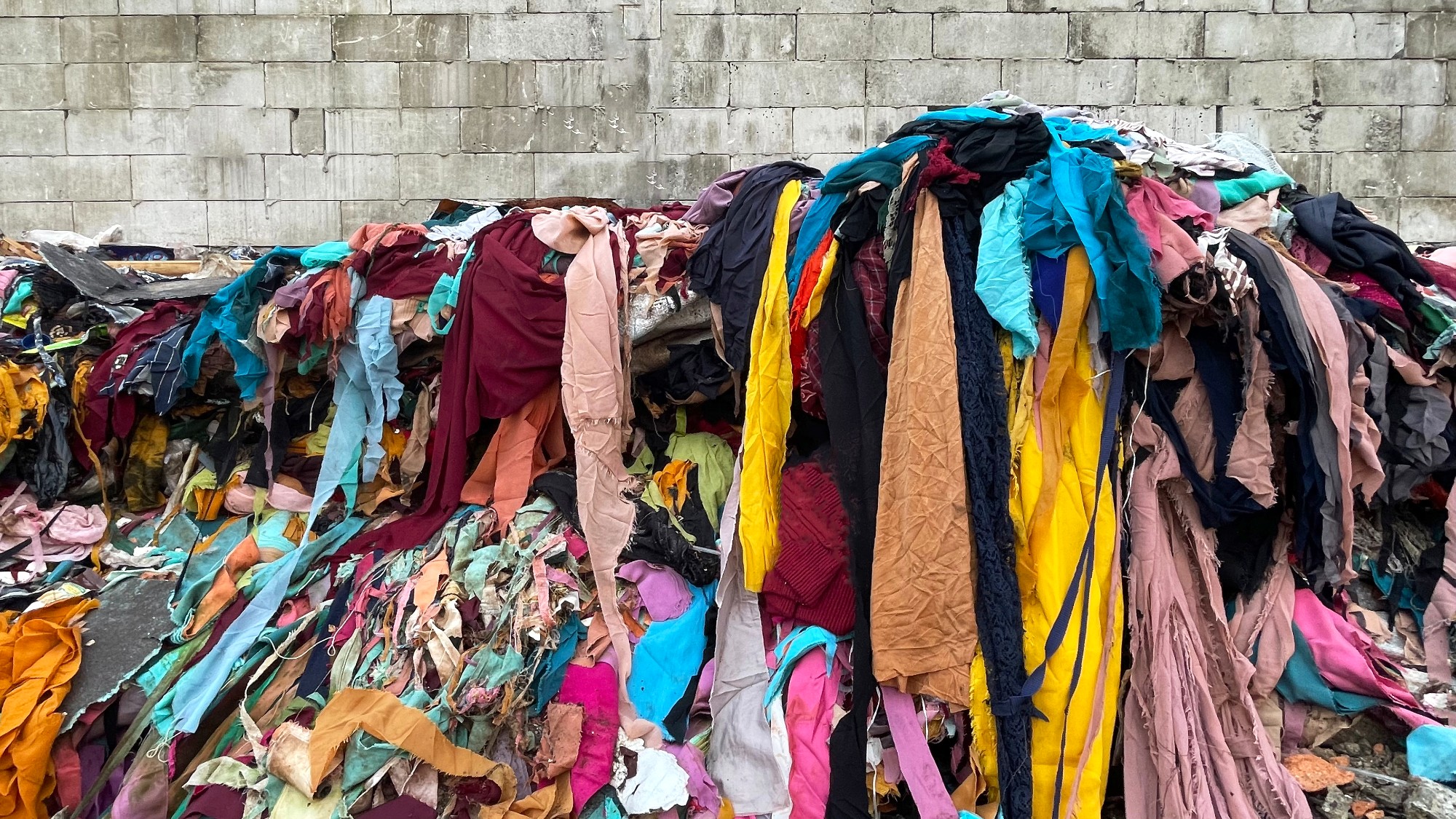Cultural copying: Western fast fashion is co-opting South Asian culture
Reformation's new collection resembles traditional South Asian garments


A free daily email with the biggest news stories of the day – and the best features from TheWeek.com
You are now subscribed
Your newsletter sign-up was successful
The fashion brand Reformation has been called out online for culturally appropriating South Asian attire. And this is not the first time mainstream Western trends have seemed to emulate South Asian design without giving credit for the inspiration. These companies are turning traditional attire into a tool to perpetuate fast fashion.
Claiming clothing
Reformation earlier this month released a collection with influencer and entrepreneur Devon Lee Carlson that contained a set of items echoing the South Asian lehenga: a midi skirt, matching camisole and long scarf. People were quick to make the connection and called the brand out for cultural appropriation. Reformation, in turn, claimed to respect the "origin of this criticism given South Asian culture's influence on Western style," said a brand spokesperson to The New York Times, adding that "no item of clothing or trend can be considered in isolation without broader historical and cultural precedent."
Taking fashion inspiration from other cultures and styles is not inherently wrong, but acknowledging the source of inspiration is what differentiates borrowing from stealing, "especially when the clothing items are repackaged at a high price by a brand in a powerful position," said the Times. "Suddenly, everything from our lehengas to dupattas are 'fashionable' — only, they're no longer attached to the cultural significance they once held," said Kriti Gupta at Elle.
The Week
Escape your echo chamber. Get the facts behind the news, plus analysis from multiple perspectives.

Sign up for The Week's Free Newsletters
From our morning news briefing to a weekly Good News Newsletter, get the best of The Week delivered directly to your inbox.
From our morning news briefing to a weekly Good News Newsletter, get the best of The Week delivered directly to your inbox.
Appreciating culture "requires education, it requires context and it requires respect," Souzeina Mushtaq, an assistant professor at the University of Wisconsin, said to The Washington Post. "You cannot just aesthetically borrow things without understanding the culture and without understanding the context." Ideally, brands would "tell the story of the roots and relevance behind a garment while collaborating with the communities these garments come from and paying them fairly," said the Post.
Cultural capitalism
Reformation is not the only brand to have created clothing with seeming South Asian influence. Fashion brands Oh, Polly and H&M have faced similar backlash. Many of these clothing companies also make their items cheaply and without input from South Asians. "The long history of cultural co-optation has often happened at the expense of the marginalized and to the profit of the white," said Harper's Bazaar India. "And what has been seen as backwards has quickly become trendy when usurped by the white."
"We're living in an extra strange time where the idea of credit has become far and far less assumed as a basic part of doing business," said Kestrel Jenkins, the host of the "Conscious Chatter" podcast, which discusses sustainable and ethical fashion, to the Times. This unfortunate trend also ties into the astronomical rise of fast fashion. "We have garments that are just being turned around as quickly as possible and with that speed, the attention to detail and the questions around what you're actually doing become less intentional and thoughtful," Jenkins said. As a result, culturally based items are being made with flimsier materials solely for the purposes of selling to a wide number of people. Just as quickly, these garments will no longer be trendy.
A free daily email with the biggest news stories of the day – and the best features from TheWeek.com
Devika Rao has worked as a staff writer at The Week since 2022, covering science, the environment, climate and business. She previously worked as a policy associate for a nonprofit organization advocating for environmental action from a business perspective.
-
 Microdramas are booming
Microdramas are boomingUnder the radar Scroll to watch a whole movie
-
 The 8 best superhero movies of all time
The 8 best superhero movies of all timethe week recommends A genre that now dominates studio filmmaking once struggled to get anyone to take it seriously
-
 Josh D’Amaro: the theme park guru taking over Disney
Josh D’Amaro: the theme park guru taking over DisneyIn the Spotlight D’Amaro has worked for the Mouse House for 27 years
-
 Best UK fashion exhibitions in 2026
Best UK fashion exhibitions in 2026The Week Recommends See much-loved and intriguing items from designers and style icons right where they belong: on display
-
 The best fan fiction that went mainstream
The best fan fiction that went mainstreamThe Week Recommends Fan fiction websites are a treasure trove of future darlings of publishing
-
 Golden Globes affirm ‘One Battle,’ boost ‘Hamnet’
Golden Globes affirm ‘One Battle,’ boost ‘Hamnet’Speed Read Comedian Nikki Glaser hosted the ceremony
-
 The best art exhibitions to book in 2026
The best art exhibitions to book in 2026The Week Recommends Our pick of the shows to see across the UK, from epoch-defining embroidery to fresh looks at under-appreciated artists
-
 ‘One Battle After Another’ wins Critics Choice honors
‘One Battle After Another’ wins Critics Choice honorsSpeed Read Paul Thomas Anderson’s latest film, which stars Leonardo DiCaprio, won best picture at the 31st Critics Choice Awards



